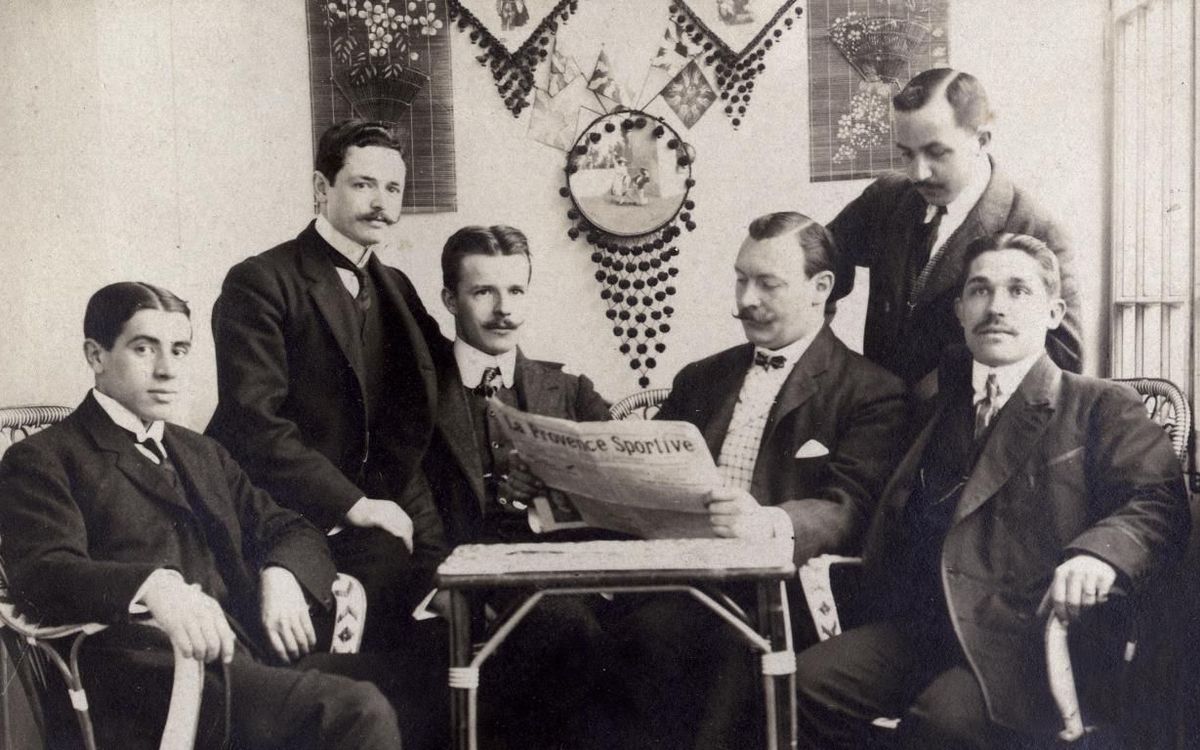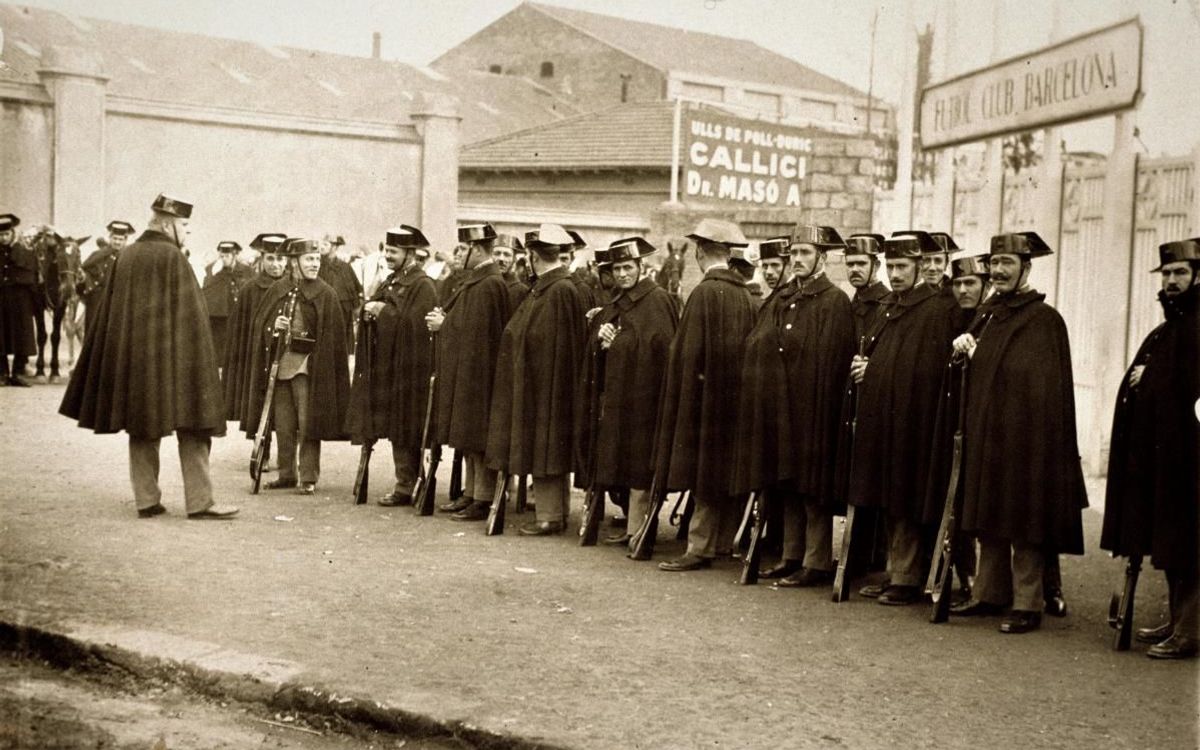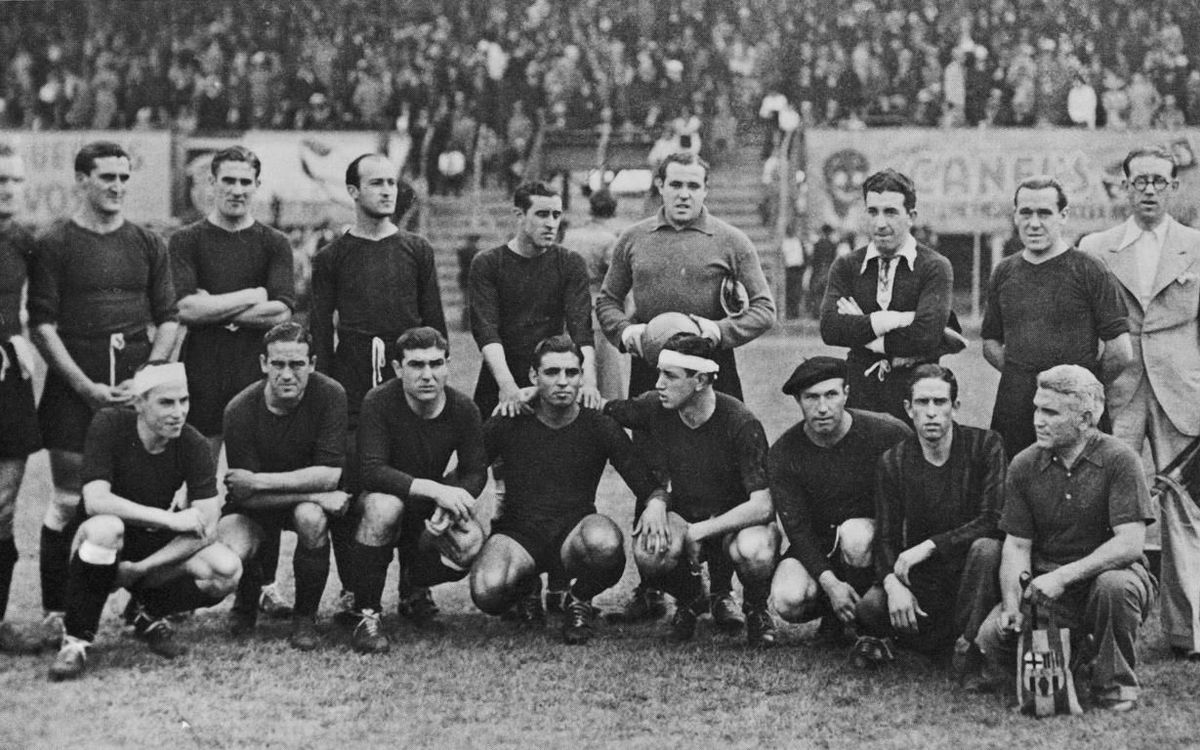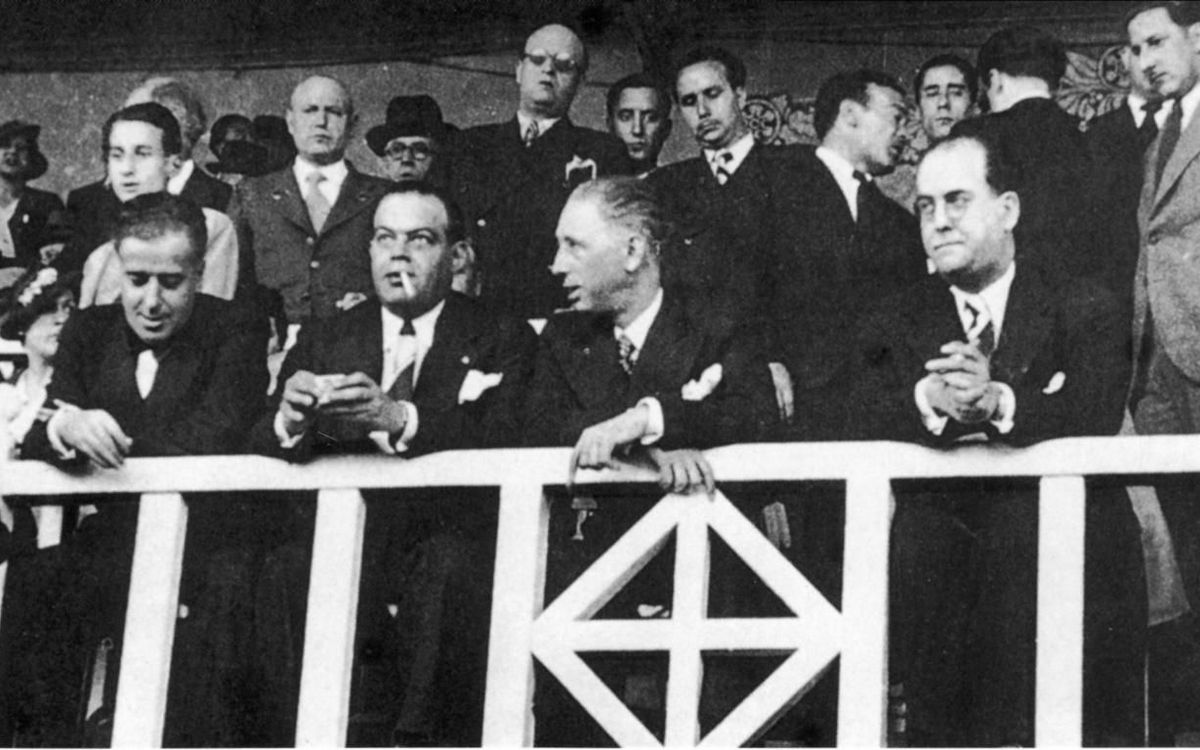Barça, historically resilient
- Viber
- Messenger
- Copy link
As everyone knows only too well, the coronavirus crisis has produced an extremely delicate situation for so many aspects of life and football is no exception. The club has always been concerned about the health of its members, supporters and employees, and by extension the welfare of humankind in general, but the directors in particular need to think about the financial impact that the crisis is having too.
But Barça is no stranger to adversity, and in its 120 years of history it has often had to adapt to difficult circumstances, and each time it has come out even stronger – even when its very existence has been on the line. Here we remember three especially poignant moments in the club’s history.
1908: Phoenix from the flames
In 1908, the club was less than a decade old, and much of the early enthusiasm was beginning to wane, not just at Barça but also among the other clubs that had sprung up in the Catalan capital. As a hobby, football was enjoying massive growth, but running organised clubs and covering the financial needs was proving a difficult toil, and by December 1908, Barça was down to just thirty or so members.
There was a general mood that the club was going to disappear. Joan Gamper, the founder of FC Barcelona, refused to let that happen and decided that he himself should become president, the first time he had held the position. He went door-to-door, drumming up support from former members, and quickly managed to get it back on solid footing, even securing the club’s first ground of its own at Carrer de la Indústria, which hosted its first game just three months after that crisis meeting.

La directiva del FC Barcelona al 1908-09 (ARXIU)
1925: Closed by government
1918 to 1929 was the Golden Age of FC Barcelona. The club’s membership tripled, Les Corts stadium opened in 1922 and the team was winning everything. But a friendly with Jupiter in 1925 almost brought an end to it all.
The charity game was no pretext for controversy, but a British marching band had been invited to perform before the game, and felt it would be nice gesture to play the Spanish national anthem. That wasn’t a wise move in Catalonia, who associated the tune to the dictator Primo de Rivera.
The authorities responded by closing the ground for six months, and the financial effects proved a costly burden. But the fans stayed loyal and the players refused to leave the club, while fellow Catalan clubs were also sympathetic and agreed to postpone the Catalan Championship until the closure was over. Once they were playing again, Barça continued more or less where they left off – winning trophies.

1936-1939. The Spanish Civil War
The Spanish Civil War of 1936-1939 brought suffering to the country, and Barça was no exception, beginning with the death of President Suñol at the hands of fascist troops very early in the conflict, several players enlisted in the ranks of those who fought against the military uprising and the club faced a struggle to avoid being collectivised.
With no source of income, the club took up an invitation to tour Mexico in 1937, eventually visiting the United States too, and the profits were banked in Paris for use to rebuild the club after the war. Barça’s members, workers and directors also remained faithful to the club throughout, keeping it running despite the absence of any matches. When football resumed in 1939, the club had clearly suffered but was soon back on it feet and heralded as a symbol of the Catalan people’s resilience.

All three situations came worryingly close to spelling out the end for FC Barcelona, but each time the blaugrana colours came out stronger than ever. So many generations have contributed to keeping the Barça name where it belongs – right at the top of the world football ladder. And long may we continue to be there.
- Viber
- Messenger
- Copy link

